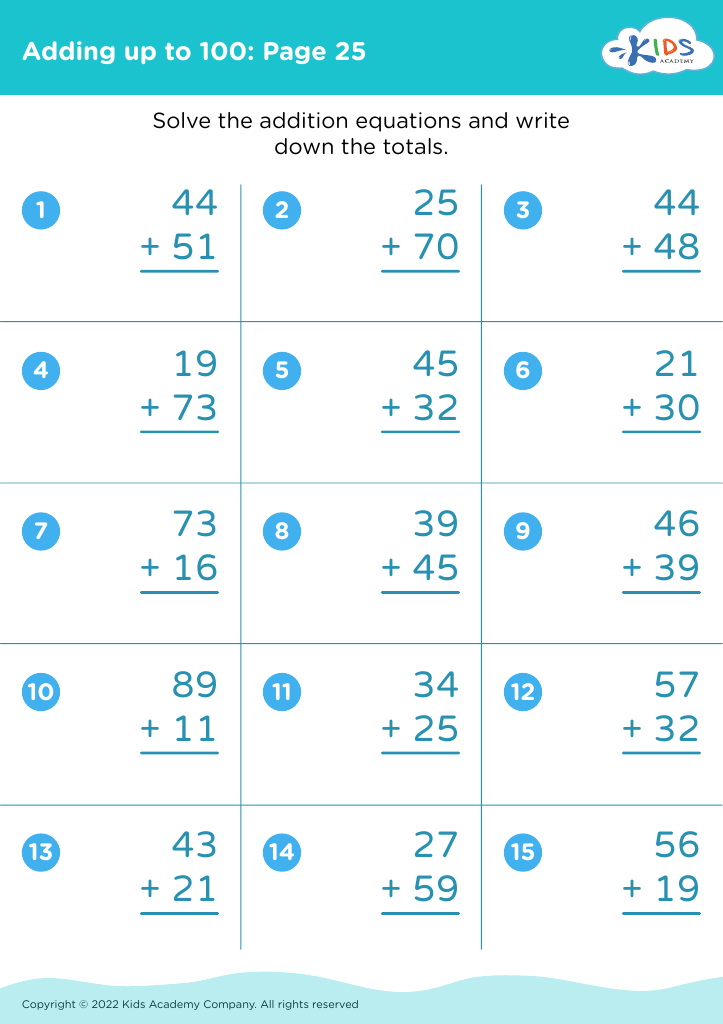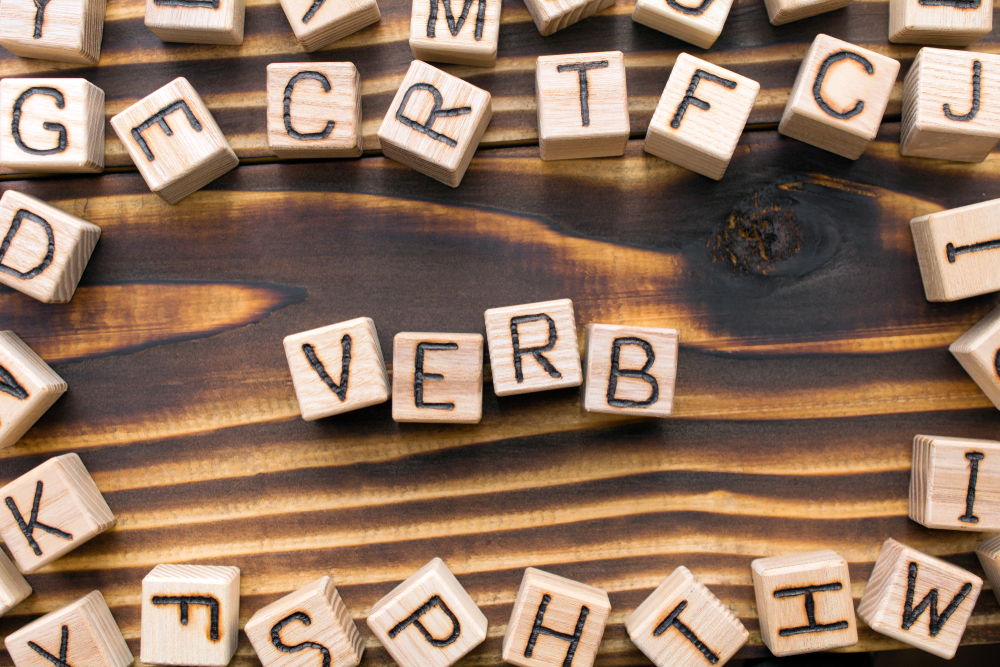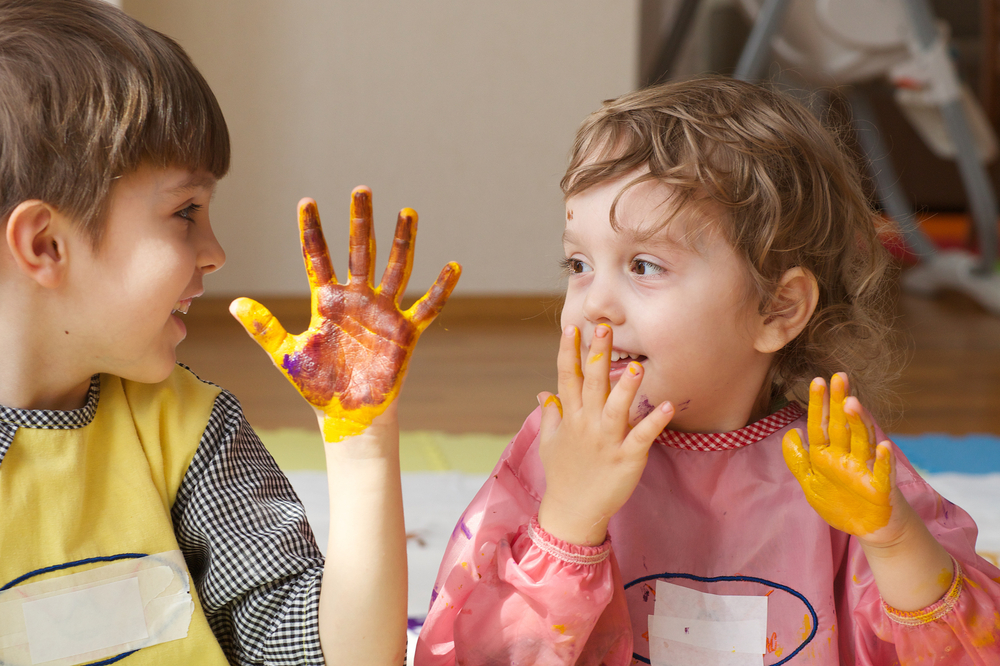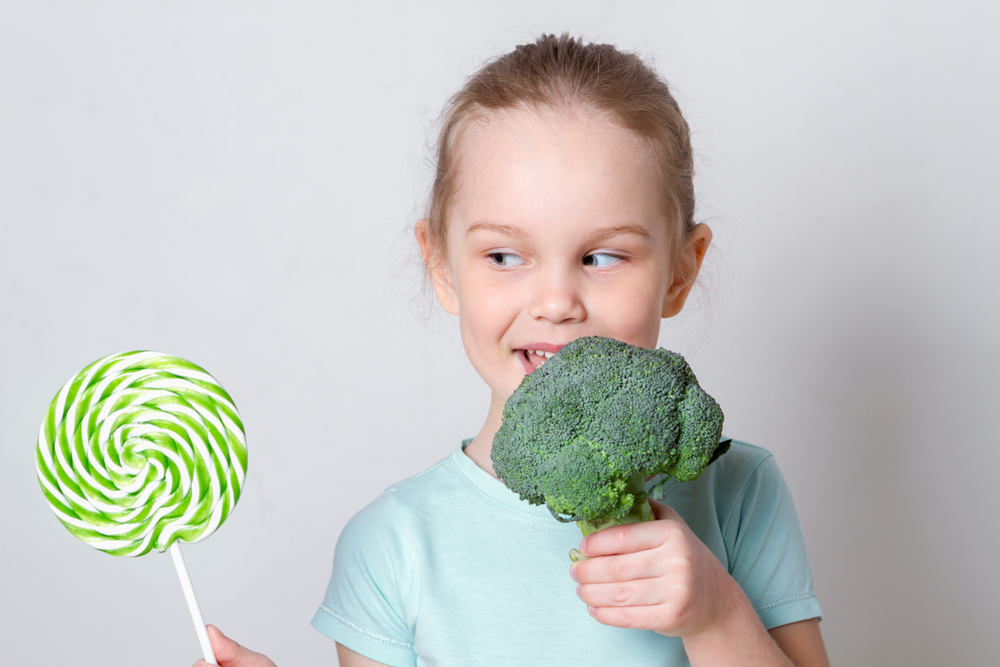Learning addition Worksheets for 8-Year-Olds
3 filtered results
-
From - To
Explore our engaging Learning Addition Worksheets designed specifically for 8-year-olds! These interactive resources make mastering addition fun and effective. Your child will tackle a variety of exercises, including single and multi-digit problems, word problems, and puzzles that challenge their critical thinking skills. Our worksheets also incorporate visual aids and real-life scenarios to enhance understanding and retention while keeping children motivated. Perfect for homework help or classroom activities, these worksheets support foundational math skills essential for future success. Download and print them easily to transform learning into an enjoyable experience. Join us today in helping your child excel in math!
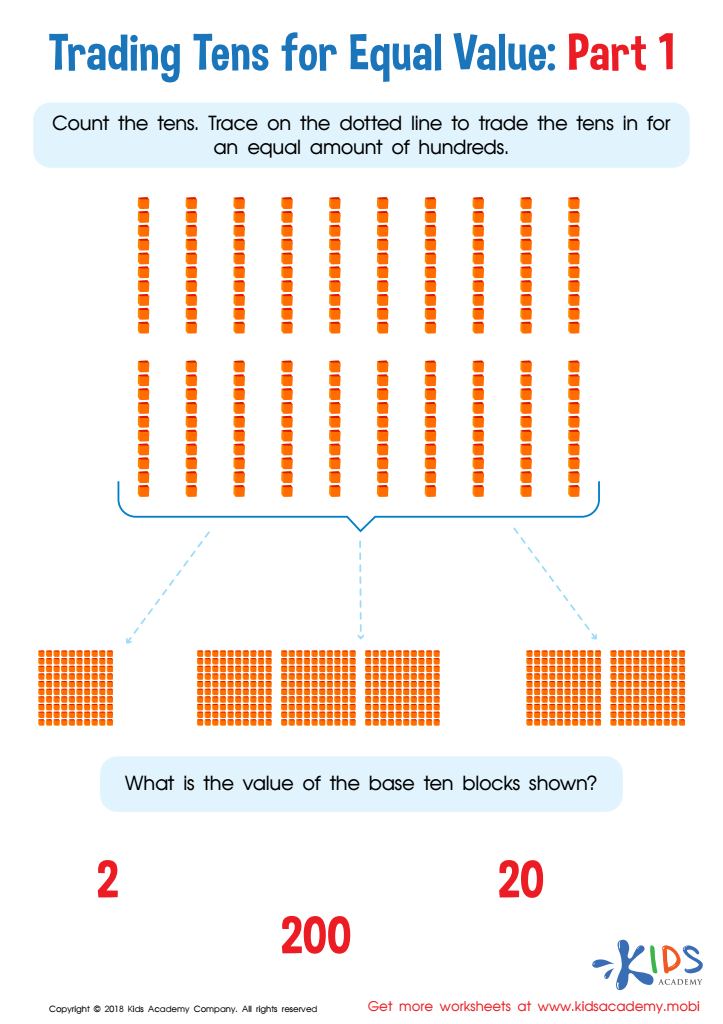

Trading Tens for Equal Value Worksheet: Part 1
Learning addition is a crucial building block in a child's educational journey, especially for 8-year-olds, who are typically in the third grade. At this age, children transition from basic arithmetic concepts to more complex mathematical ideas. By mastering addition, they develop a solid foundation that is essential for future math skills, including multiplication, division, and eventually, algebra.
Furthermore, strong addition skills enhance critical thinking and problem-solving abilities. Children learn how to approach problems logically and efficiently. This not only aids their math comprehension but also equips them with valuable life skills, promoting resilience and adaptability.
Moreover, understanding addition supports other subjects such as science and economics, where numerical data interpretation is often required. For social interactions, mastering addition helps children to understand aspects of money management, budgeting, and sharing in games and activities.
For parents and teachers, nurturing an 8-year-old's addition skills can foster a love for learning and build confidence in their math abilities. Engaging in fun and interactive methods can make learning enjoyable, ensuring that the child remains motivated. Thus, investing time and resources to reinforce addition is paramount for holistic development and future academic success.
 Assign to My Students
Assign to My Students
